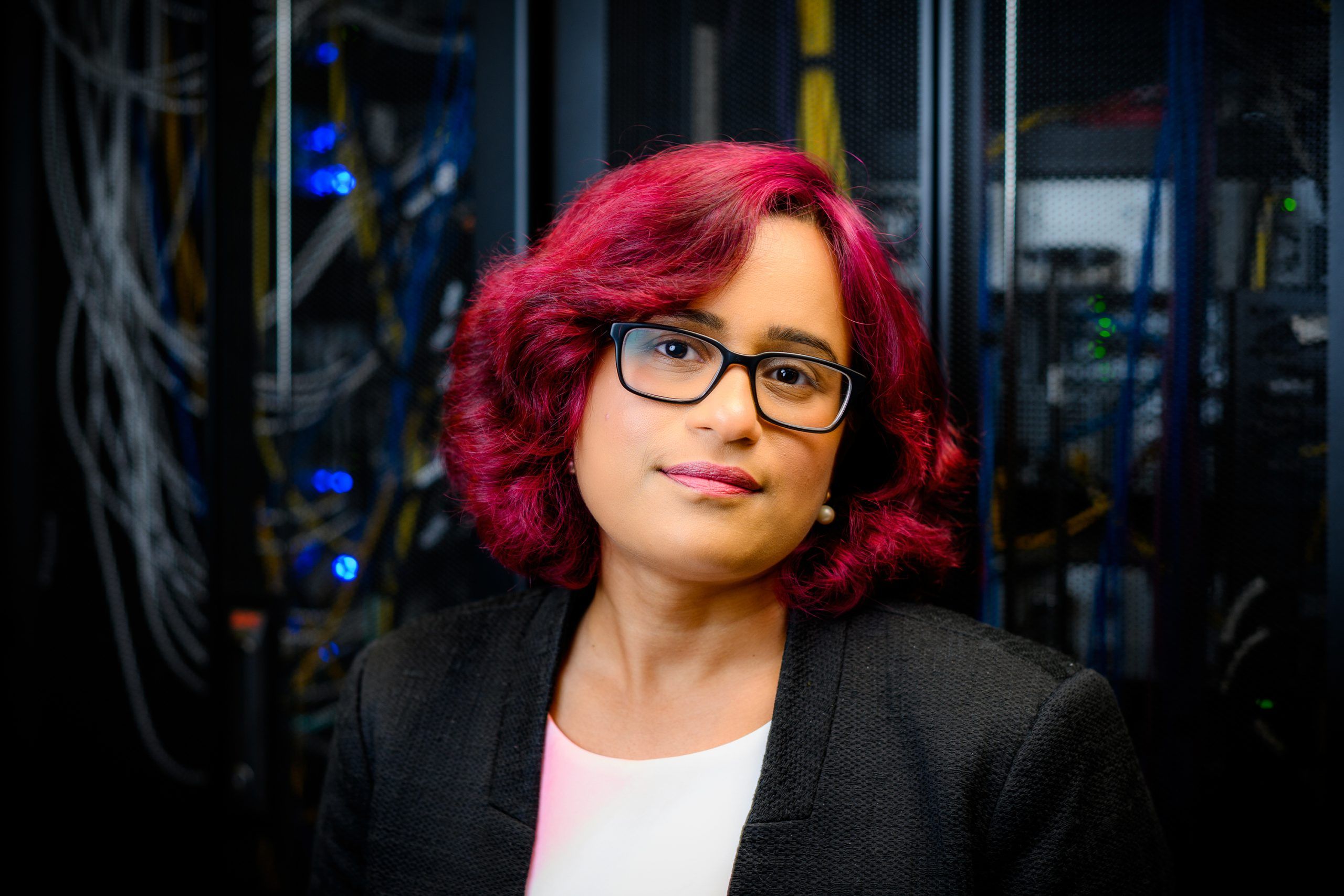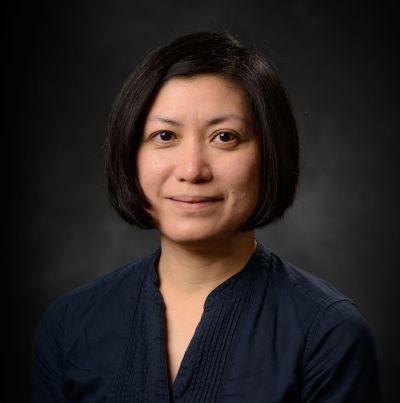Two researchers are recognized for their unique approaches and potential for far-reaching impact.
NSF CAREER Award
Information and analytics researcher awarded prestigious NSF funding
Imagine reading thousands of complex, technical articles, and then painstakingly marking all of the important concepts within each one and connecting them across all scientific publications over time.
That scenario describes the traditional process biologists use to catalog knowledge – using biological ontologies – and make it accessible to scientists across the globe. This work requires enormous resources, says bioinformatics specialist Dr. Prashanti Manda. “The process is slow, tedious, and impossible to scale.”
It also contributes to a bottleneck, where databases aren’t as updated as they should be, and scientists can miss critical connections.
Manda and her collaborators – Dr. Somya Mohanty and graduate student Pratik Devkota – are attempting to develop an open-source artificial intelligence application that can create ontologies automatically.
“We’re trying to teach a machine to do what a human can do intuitively,” she says.
Manda was recently awarded an NSF CAREER Award for the project. These prestigious grants support early-career faculty with the potential to become academic role models in the integration of research and education.
Ultimately, the project seeks to help scientists recognize important biological concepts from literature more efficiently.
“We hope these methods will supplement human labor,” says Manda, “and free up researchers to focus on scientific inquiry.”
Manda is pictured here with UNC Chapel Hill’s supercomputer Longleaf, which will provide her team with the computing power their project requires.
NSF CAREER Award
Information and analytics researcher awarded prestigious NSF funding

Imagine reading thousands of complex, technical articles, and then painstakingly marking all of the important concepts within each one and connecting them across all scientific publications over time.
That scenario describes the traditional process biologists use to catalog knowledge – using biological ontologies – and make it accessible to scientists across the globe. This work requires enormous resources, says bioinformatics specialist Dr. Prashanti Manda. “The process is slow, tedious, and impossible to scale.”
It also contributes to a bottleneck, where databases aren’t as updated as they should be, and scientists can miss critical connections.
Manda and her collaborators – Dr. Somya Mohanty and graduate student Pratik Devkota – are attempting to develop an open-source artificial intelligence application that can create ontologies automatically.
“We’re trying to teach a machine to do what a human can do intuitively,” she says.
Manda was recently awarded an NSF CAREER Award for the project. These prestigious grants support early-career faculty with the potential to become academic role models in the integration of research and education.
Ultimately, the project seeks to help scientists recognize important biological concepts from literature more efficiently.
“We hope these methods will supplement human labor,” says Manda, “and free up researchers to focus on scientific inquiry.”
Manda is pictured above with UNC Chapel Hill’s supercomputer Longleaf, which will provide her team with the computing power their project requires.
AAAS Fellow
School of Education professor named a fellow of the American Association for the Advancement of Science
For a young person, it’s hard to imagine growing up to be a scientist or an engineer if you don’t see scientists or engineers that look like you. Dr. Edna Tan is changing that, one young person and community at a time.
“Professionals in STEM are often white males. There’s a lack of representation of people of color, and women,” she says. “How children are introduced to STEM and how they engage with it influences whether they regard STEM as something they can or want to do.”
Last year, Tan was elected as a fellow of the American Association for the Advancement of Science, or AAAS. She is the first woman at UNCG to receive this coveted honor from the world’s largest multidisciplinary scientific society.
AAAS fellows are selected by their peers for efforts that advance science, that are scientifically or socially distinguished. Dr. Tan’s research explores how we design STEM teaching and learning that is both impactful and equitable, with a focus on underrepresented populations.
Her approach calls for deep embedment within communities over long periods of time. Building trust and personal relationships are key, she says, because successful learning environments are developed in collaboration with the youth and teachers they engage.
Tan’s co-authored paper “Rethinking High-Leverage Practices in Justice-Oriented Ways” recently won the Journal of Teacher Education’s Outstanding Article Award.
Her goal for STEM learning, she says, is “learning where youth can be rightfully present, where they can be themselves, and where they can become who they want to be.”
AAAS Fellow
School of Education professor named a fellow of the American Association for the Advancement of Science

For a young person, it’s hard to imagine growing up to be a scientist or an engineer if you don’t see scientists or engineers that look like you. Dr. Edna Tan is changing that, one young person and community at a time.
“Professionals in STEM are often white males. There’s a lack of representation of people of color, and women,” she says. “How children are introduced to STEM and how they engage with it influences whether they regard STEM as something they can or want to do.”
Last year, Tan was elected as a fellow of the American Association for the Advancement of Science, or AAAS. She is the first woman at UNCG to receive this coveted honor from the world’s largest multidisciplinary scientific society.
AAAS fellows are selected by their peers for efforts that advance science, that are scientifically or socially distinguished. Dr. Tan’s research explores how we design STEM teaching and learning that is both impactful and equitable, with a focus on underrepresented populations.
Her approach calls for deep embedment within communities over long periods of time. Building trust and personal relationships are key, she says, because successful learning environments are developed in collaboration with the youth and teachers they engage.
Tan’s co-authored paper “Rethinking High-Leverage Practices in Justice-Oriented Ways” recently won the Journal of Teacher Education’s Outstanding Article Award.
Her goal for STEM learning, she says, is “learning where youth can be rightfully present, where they can be themselves, and where they can become who they want to be.”